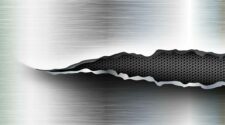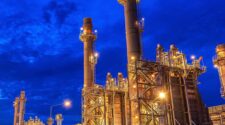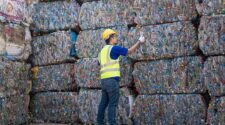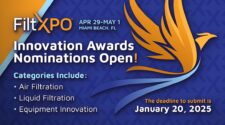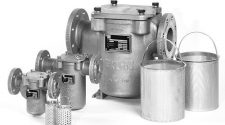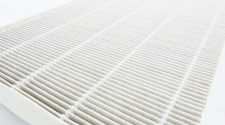Lawsuit Seeks to Restore Competition in Markets for Aviation Fuel Filtration Products
The Department of Justice filed a civil antitrust lawsuit today against Parker-Hannifin Corporation, challenging its acquisition of CLARCOR Inc. The department said that the $4.3 billion transaction substantially lessened competition in markets for aviation fuel filtration products in the United States, which threatens to result in higher prices, less innovation, and less favorable terms of service.
The department’s lawsuit seeks to restore the competition that this transaction eliminated by asking the U.S. District Court for the District of Delaware to order Parker-Hannifin to divest an aviation fuel filtration business sufficient to replace CLARCOR’s competitive significance in the marketplace.
“Parker-Hannifin bought CLARCOR knowing that this transaction raised serious antitrust concerns under Section 7 of the Clayton Act in the development, manufacture and sale of aviation fuel filtration products,” said Deputy Assistant Attorney General Donald Kempf of the Department of Justice’s Antitrust Division. “The Division is committed to vigorous and sound enforcement of the antitrust laws, and will do its job to protect American customers regardless of whether a merger has already been consummated,” he added.
“Parker-Hannifin’s acquisition of its only U.S. rival for these types of aviation fuel filtration products has effectively created a monopoly in these critical safety products, depriving their customers of the benefits of competition,” said Acting Assistant Attorney General Andrew Finch of the Department of Justice’s Antitrust Division.
Aviation fuel must be filtered properly to remove particulate contaminants and water droplets before such fuel is delivered into commercial or military aircraft. The failure to filter aviation fuel properly can result in engine failure, with potentially catastrophic consequences. To protect public safety, the U.S. airline industry mandates the use of aviation fuel filtration systems and filtration elements that have been subjected to rigorous testing and qualification requirements. Only those aviation fuel filtration products qualified by the Energy Institute (EI) may be used to filter aviation fuel for use in U.S. commercial and military planes.
According to the department’s complaint, Parker-Hannifin and CLARCOR were the only two manufacturers of EI-qualified aviation fuel filtration systems and filter elements in the United States and were engaged in vigorous head-to-head competition. That competition enabled customers to negotiate better pricing and to receive more innovative products and better terms of service. The transaction eliminated this competition.
During the pendency of the department’s investigation, Parker-Hannifin failed to provide significant document or data productions in response to the department’s requests. In addition, the company has not agreed to enter into a satisfactory agreement to hold separate the fuel filtration businesses at issue and to maintain their independent viability pending the outcome of the investigation and, now, this litigation.
Parker-Hannifin Corporation is an Ohio corporation headquartered in Cleveland, Ohio. It is a diversified manufacturer of filtration systems, and motion and control technologies for the mobile, industrial and aerospace markets with operations worldwide. In 2016, Parker-Hannifin’s sales revenues were approximately $11.4 billion. Parker-Hannifin sells its aviation fuel filtration products under the Velcon brand.
CLARCOR Inc. was a Delaware corporation headquartered in Franklin, Tennessee. CLARCOR was a leading provider of filtration systems for diversified industrial markets with net sales of approximately $1.6 billion in 2016. CLARCOR manufactured and sold aviation fuel filtration products under the PECOFacet brand.


